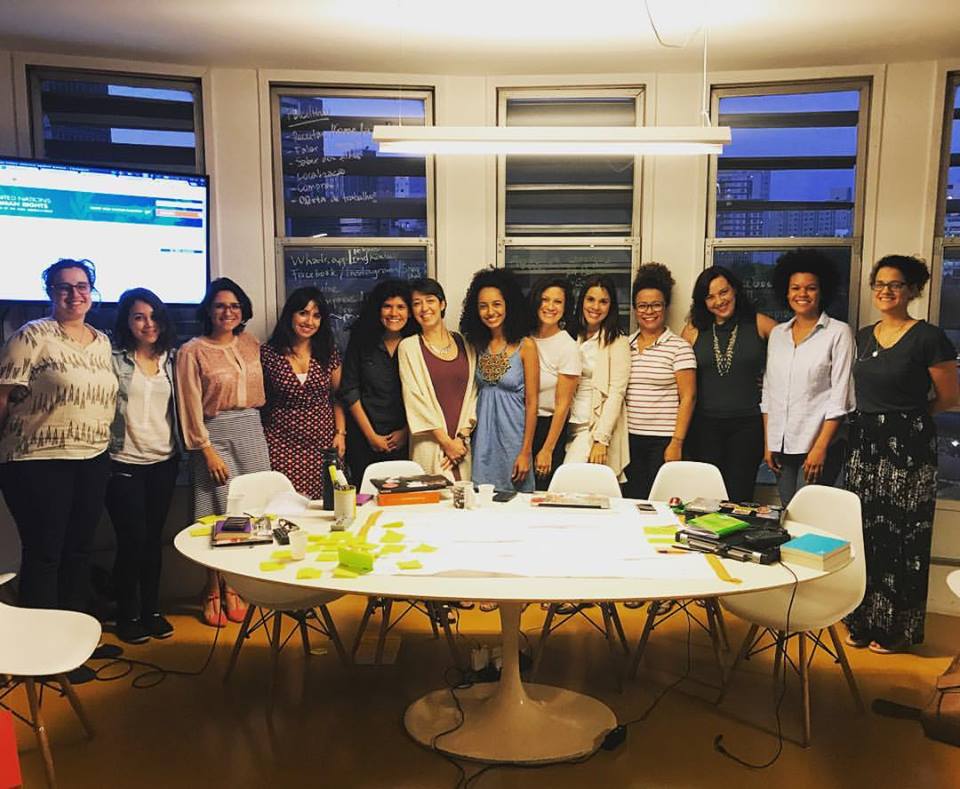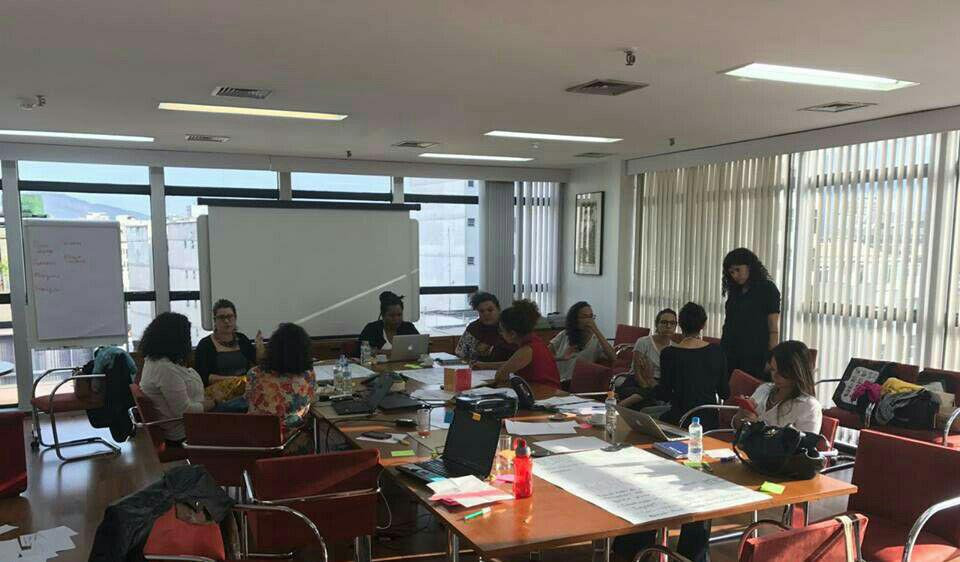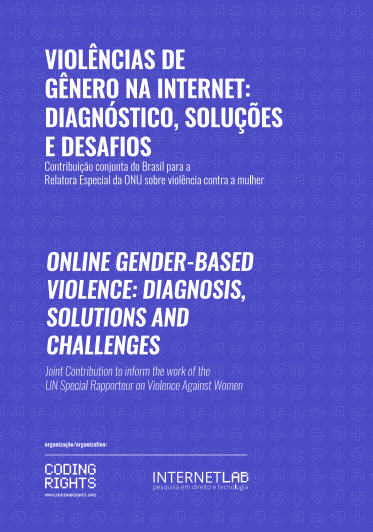
Organizations release report on online gender-based violence that will assist discussions at the UN
The report “Online Gender-Based Violence: diagnosis, solutions and challenges” was released today at the Brazilian Internet Forum as the result of a joint contribution from Brazil to the UN special rapporteur on violence against women who is writing a report on online violence.
Jointly developed by Coding Rights and InternetLab, the report is available here [in Portuguese and English].
The contribution is the product of a series of meetings and debates among networks of organizations, collectives, lawyers, jurists, and activists defending Human Rights, digital rights and sexual and reproductive rights in Brazil. The purpose was to survey the different forms of violence manifested also through digital media; raise the available solutions at the legal arena and its gaps; map the challenges to fight them in a multisectoral manner in a social context marked by sexism and structural racism preserving freedom and the open and distributed nature of the web’s architecture.


During the debate cycles, we observed that as women become more vocal on the web, this visibility has also been accompanied by misogynist, racist, lesbo and homophobic speeches and other forms of attacks that appear as an attempt to shut these voices. Most of the times, actions and attack methods result in a complex matrix of several types of moral and material damages. For instance, to spread or threatening to spread intimate pictures can be framed in a series of criminal acts, that range from threat, extortion, exposure of intimacy, exposure of personal data, to unlawful use of image, moral damage, etc. Even so, it is usual to observe that in the same way as it happens with other forms of offline gender-based violence, the blaming of the victim and the minimization of these offenses has been frequent, making the targeted person feel illegitimate to complain and denounce.
In an attempt to visualize this complexity and how different forms of attacks are usually related, we built a typology based on violence cases (available here).
At the end of the report, we highlight that any recommendations presented in an analytical report on online gender violence should take into account that:
-It is not possible to separate online from offline when dealing with gender violence;
-Like all rights, the right to freedom of expression is not absolute and is restricted by other rights, such as the right to non-discrimination;
-Some platforms have not given room for cultural diversity in their terms of use, and they have been used to censor speeches, debates, and performances of gender and sexual and reproductive rights that dissent from historically constructed heteronormative, sexist and racist patterns;
-Protection of privacy and pseudo-anonymity are also instrumental in protecting women who are more vocal on these platforms;
-Any answer to the question should consider the multisectoral nature of governance of the web, especially in a country where access to justice and inequalities of gender, race, and class make it difficult to resolve conflicts through the judiciary power;
Considering these overarching aspects, we also addressed recommendations to three sectors: State, Private Sector, and Civil Society.
The document has contributions from representatives of the following agencies, organizations, and collectives that work on gender rights: Blogueiras Negras (a group of female bloggers of African descent) NUDEM – Núcleo Especializado de Promoção e Defesa dos Direitos das Mulheres da Defensoria Pública do Estado de São Paulo – (the specialized center for the promotion and defense of women’s rights of the office of the public defender of the State of São Paulo) Intervozes – Coletivo Brasil de Comunicação Social (a collective of social communicators) NUMAS (Núcleo de Estudos sobre Marcadores Sociais da Diferença da Universidade de São Paulo) (the center for studies on social markers of difference at the University of São Paulo) OLABI MakerSpace Rede Feminista de Juristas (a network of feminist jurists) MariaLab Hackerspace Paixão Fiorino Advogados Ellen Paes – activist Celeste Leite dos Santos – Public Prosecutor, Women’s Director at the São Paulo Public Prosecutor’s Office Association Artigo 19 Brasil Gênero e Número. We also had the support of Ford Foundation Brazil for convening a meeting to kick-start the discussion of the report and the support of the Association for Progressive Communications – APC, to translate the document to English.
The Brazilian contribution was also used to build a regional report, made by an articulation of Latin American organizations called Al Sur. The regional report can be accessed in Spanish here.
Access our report in English and Portuguese:
